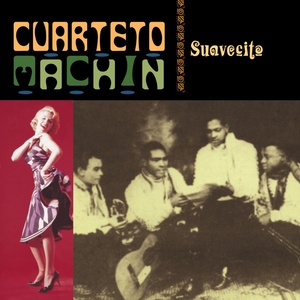
- 歌曲
- 时长
简介
Singer and orchestra leader Antonio Machín was born in Sagua la Grande, in the Cuban province of Santa Clara, in the year 1900 as one of sixteen children. His mother was Cuban but his Spanish-born father came from Galicia, the north-east part of the Iberian peninsular. Singing and working, he covered the whole island until finally arriving at the capital where he met a Spanish man, Señor José, who helped him as if he were his own son, taking him from one small café to another in Havana, where notice was served that one day Antonio would become a great artist. In Havana, Machín broadened his musical horizons by getting involved with different line-ups (quartets, sextets, etc). He joined the Trio Luna, finding himself at the side of Enrique Peláez (tres guitar) and Manuel Luna (second voice and guitar). In 1926 he got to know the famous guitarist and singer Miguel Zaballa with whom he sang in duo in nightclubs as well as on the radio, which at that time was in its infancy in Cuba. His fame was such that in 1927, Don Azpiazu, leader of the Havana Orchestra, engaged the duo to perform at the National Casino in the Cuban capital. At seventeen years of age, Machín became a singer of standing at the worldwide known Casino of Havana, and people came to the Casino from far and wide. From neighbouring U.S.A came the flower of its society, and on the terraces, under the stars, the heirs to millions, movie stars, and diplomatic VIPs, danced and flirted. In 1929, Machín with his friend guitarist and singer Daniel Sanchez (with whom Antonio had already sung in duo) founded a sextet, which included also the tres guitar Alejandro ‘Mulaton’ Rodriguez, and recorded his first sones. Machín was indulged by the public, and in demand by insistent impresarios who wanted to whisk him away to New York, where awaiting him were the beckoning lights and dollars of Broadway. For the young Cuban, to leave his country was a genuine wrench. Its blue skies, its passionate music, his family’s loving warmth. But the offers were so enticing and tempting that he finally departed. Antonio Machín had decided to reside in New York, where he continued his career at the head of a quartet, the legendary Cuarteto Machín, made up by his old companion singer/guitarist Daniel Sanchez, who was the only permanent member of the group. For some time he had Mario Bauza on trumpet, who was to be replaced after a while by Fabelo and even later again by Placido Acevedo. Mario, who had successfully played bass-clarinet with the Havana Philharmonic and clarinet in various nightclub bands, had also come to New York with Don Azpiazu’s orchestra. Antonio needed a trumpet player at his first recording sessions, and asked for Bauza, who learned to play the instrument in just two weeks flat! These recordings constitute an extraordinary document of this wonderful quartet and represent the first steps in what would become later the long and extensive artistic career of this Cuban singer, who after his success in America went to Europe in 1934. There he triumphed in London and later in Paris with a show by Moisés Simon entitled ‘La Noche De Los Tropicos’; and later his silhouette was a familiar sight in Montparnasse, where in one of its salons, ‘La Coupule’, he performed in front of his Havana orchestra. On the Côte d’Azur he caused a genuine sensation in Cannes, and remained there throughout the long winter months. Machín crossed and recrossed Europe performing in Germany, Denmark, Sweden, the Netherlands, Italy and Rumania. In 1939 he finally settled in Spain, a country that adopted him for ever. The Spanish people, exhausted at the end of three years of civil war, cherished the sensous voice of Machín, and Antonio found himself a new homeland (although he was the son of a Spanish-born father and Cuban mother), and where his brilliant career continued unchanged as before. Always at the very top of popularity, in Spain he was the most loved and successful artist ever of Cuban origin, and he finally died in Madrid on the 4th of August 1977.







